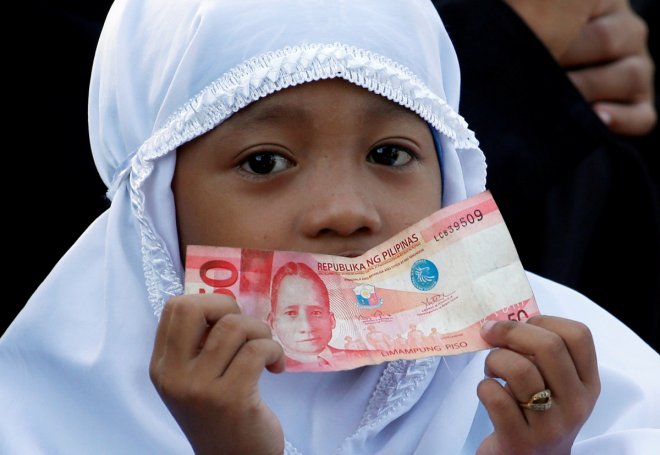
Philippines' peso plunged to a seven-year low of 48.618 in October to become Asia's worst performing currency. Analysts have warned they haven't seen the bottom yet for peso.
According to Credit Suisse, the currency will drop further to 50.3 by March next year. Rabobank says peso will fall past that mark by June.
The last time peso neared the 50 levels against the US dollar, the global economy was in a tailspin. However, this time round the currency's fall is directly pegged to the president's "unorthodox rhetoric", Bloomberg reported, citing analysts.
Investment funds withdrew as much as US$600 million from Philippine stocks since August when Duterte foulmouthed US President Barack Obama and announced his country will separate from the US, the long term ally.
Philippines' $20 billion outsourcing sector is a lifeline to the economy, and American companies account for more than 70 percent of this industry. Detente's dogged efforts to shift foreign policy slant away from the US and depend more on China has spooked US investors.
Duterte's violent crackdown on drug traffics and the extra judicial killings he ordered invited international criticism. It also made the Filipinos working overseas wary of the domestic situation, something that eventually resulted in a decline in remittances. The Philippines economy depends heavily on money sent in by citizens working abroad, mainly in the US and the Middle East.
"Economic impact is difficult to gauge at this stage and may only be seen longer term, but the uncertainty on his foreign policy could deter foreign investment," Trang Thuy Le, a macro strategist in Hong Kong at Credit Suisse, told Bloomberg.
"For now, we think it warrants a higher degree of risk premium and volatility to be priced in the Philippine peso."








